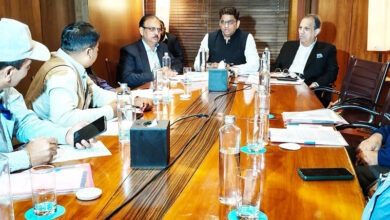Harnessing Technology for Transformative Governance: Bridging Gaps and Fostering Inclusivity
- Mr. Ajay Sharma, CEO, PoGoSo Social

In the modern era, technology has become a catalyst for change, reshaping the landscape of governance and citizen engagement. From the grassroots level to the highest echelons of power, technological advancements have revolutionized how governments interact with their citizens, manage grievances, and ultimately govern. This transformative potential of technology has paved the way for a more inclusive, transparent, and efficient form of governance.
One of the most notable impacts of technology on governance is its ability to bridge the gap between citizens and their representatives. In the past, voicing grievances or concerns to government officials often required significant time and effort, leading to a sense of disconnect between the governed and the governing. However, with the advent of digital platforms and social media, citizens now have direct channels through which they can communicate with their elected representatives, express their concerns, and participate in the decision-making process.
Platforms like Twitter, Facebook, PoGoSo, Nextdoor and various apps have democratized the flow of information, allowing citizens to engage in real-time discussions on policies, provide feedback on government initiatives, and hold officials accountable for their actions. This newfound accessibility has not only empowered citizens but has also forced governments to be more responsive and transparent in their operations.
Furthermore, technology has revolutionized the way governments collect and analyze data, enabling them to make more informed decisions and allocate resources more efficiently. Through the use of data analytics, governments can identify trends, anticipate challenges, and tailor policies to better meet the needs of their citizens. For instance, data-driven governance has been instrumental in areas such as healthcare, education, and urban planning, where policymakers can leverage insights from large datasets to improve service delivery and enhance overall quality of life.
Moreover, technology has played a crucial role in fostering transparency and accountability within governments. With the proliferation of open data initiatives and online portals, citizens now have unprecedented access to government information, ranging from budget allocations to procurement contracts. This transparency not only helps prevent corruption and misuse of public funds but also builds trust between citizens and their government.
Additionally, technology has enabled the emergence of innovative governance models that prioritize citizen participation and collaboration. Platforms such as participatory budgeting allow citizens to directly influence how public funds are allocated, empowering communities to address their most pressing needs. Similarly, crowdsourcing platforms enable governments to tap into the collective intelligence of their citizens, soliciting ideas and solutions to complex challenges.
However, despite its transformative potential, the widespread adoption of technology in governance also presents its own set of challenges. The digital divide, for example, exacerbates existing inequalities, with marginalized communities often lacking access to the internet and digital literacy skills. Moreover, concerns around data privacy and cybersecurity raise questions about the ethical use of technology in governance and the potential for abuse of power.
Nevertheless, the benefits of embracing technology in governance far outweigh the challenges. By harnessing the power of technology, governments can foster greater citizen engagement, enhance decision-making processes, and ultimately build more inclusive and responsive institutions. From grassroots movements to national governments, the transformative potential of technology offers a pathway toward a more equitable and prosperous future for all. As we navigate the complexities of the 21st century, we must leverage technology as a force for positive change and harness its potential to build a more just and equitable society.
The opinions expressed in this column are of Mr. Ajay Sharma, CEO, of PoGoSo Social.








